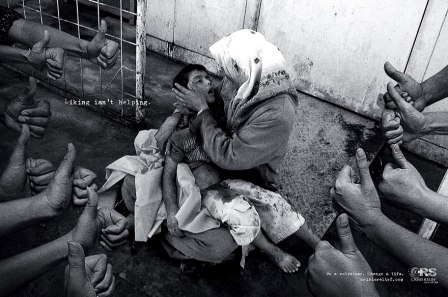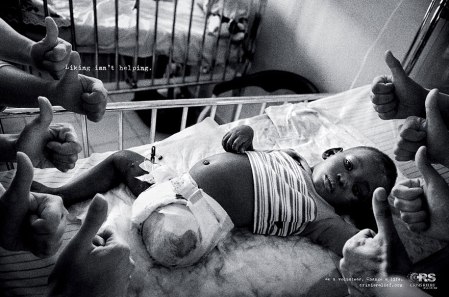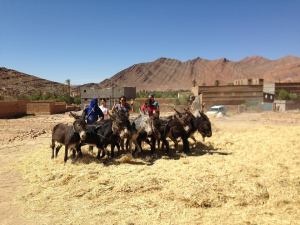Dear social media,
You are so much more than two words and eleven letters.You are Youtube, Facebook, Twitter, Instagram, Vine and Pinterest. You have been, and always will be, there for me.
When international development studies gets to be too much, I turn to you. Sometimes I shamefully close tabs about food security issues in the Sahel region, the recent kidnapping of two Japanese men by ISIS, and the Toronto woman charged with first-degree murder and attempted murder of her parents. Instead, I open Youtube so I can chuckle at an overweight boy with a pie crust around his face sing about pie. It’s great.
Pie crusts aside, I’ve also seen real value in your work. Remember the #BellLetsTalk campaign that Bell hosted for mental health? I retweeted the hell out of that hashtag so I was integral in donating and supporting Canadian mental health. (You go girl). Not only were 5 cents donated whenever Bell (oh, and the campaign) was mentioned on Facebook and Twitter or when calls and texts were made by Bell users, mental illness also became the hot topic for the week.
On a more serious note, there was the #BringOurGirlsBack campaign in April 2014 when over 200 Nigerian girls were abducted by Boko Haram. Initially started by Nigerian bloggers, the #BringOurGirlsBack campaign you had on Twitter and Facebook challenged internet users to vocalize their opposition against the rebel extremists.
Last but not least, you shared the infamous #Kony2012 campaign by Invisible Children (IC). Even before IC’s hashtag campaign, I wanted to support them in whatever way I could because I believed in their cause. In 2010, I turned to my dad and asked him to buy me the Invisible Children bracelets because, “dad, I’m really trying to make a difference here”. Of course my father, being the wise man he is, turned down my request because buying into campaigns like that lines pockets of the privileged more than it improves the lives of those in need.
Moving forward, the #Kony2012 campaign rallied the efforts of hundreds and thousands of youth and young adults. I applaud the production and marketing team for doing a phenomenal job. I was moved to tears and compelled to take action…by sharing the video.
Now, social media, this is where I become a little harsh towards you. A few days ago, I came across an ad campaign by Crisis Relief Singapore that gave me a virtual slap across the face. Based around the tagline “liking isn’t helping”, these ads feature powerful images of desolate situations around the world.

Each image is surrounded by hands giving the thumbs-up sign to mimic the Facebook “like” sign. The ads are simple but the message is clear. Clicking, sharing or liking does not make a tangible difference.

Did you know that our generation of internet users have been deemed “slacktivists” for this very reason? I’m not kidding. Slacktivism is recognized by the Oxford English Dictionary and defined as “actions performed via the Internet in support of a political or social cause but regarded as requiring little time or involvement.”
One extreme of the slacktivism argument boldly claims that slacktivists should be ashamed of participating in hashtag and colour campaigns because it isn’t genuine action. A study by University of British Columbia found that those who “liked” a cause were less likely to donate. In their minds, “liking” or retweeting a cause online equates to taking action.
But here’s the shocker. #BringBackOurGirls didn’t bring back our girls and pink ribbons won’t beat breast and gynecological cancer. In fact, in October 2014, 219 of the 276 Nigerian girls still remained in captivity. Interestingly enough, that didn’t make the headlines.
The other side of the argument suggests that you, social media, are useful in inspiring people, spreading best practice and raising awareness of important philanthropic causes. You are the ideal way to share how people’s support for a cause can make a difference. You are important in raising awareness and allowing people to stay current with top headlines.
I straddle the sentiments of both of these arguments. While I do see value in initially raising awareness on social media sites, I am disappointed to see that all too often, it ends there. You put pressing issues in people’s mind and temporarily succeed in seeping into household conversations but like all other trends, it passes. Action stops when that “like” button changes to “unlike”.
Let me be honest with you, my hands aren’t clean in this. I constantly remind myself that liking a campaign or retweeting a hashtag is the bare minimum of support. It’s impossible to solve world issues with the click of a button.
The uncomfortable reality is this: we are slacktivists. However, I do believe that we are change makers. We are in a unique era that allows us to leverage all forms of technology and networks to improve lives and because of that, I am optimistic that our the generation will bring change. We just need to get off our butts.
So help me out, social media. Help me inspire people to create genuine dialogue about current affairs. Help me challenge people to contact local and international organizations, university clubs and government officials who support their interests. I know you have it in you to bring some real change
Love always,
Sarah
* * * * * * * * * * * * * * * * * * * * * * * * * * * * * * * * * * * * * * * * * * * * * * * * * * *
What do you think? Is social media important in combating world issues or is it just turning us into slacktivists? Have you ever been caught between the crossfires of meaningful campaigns and social media?
